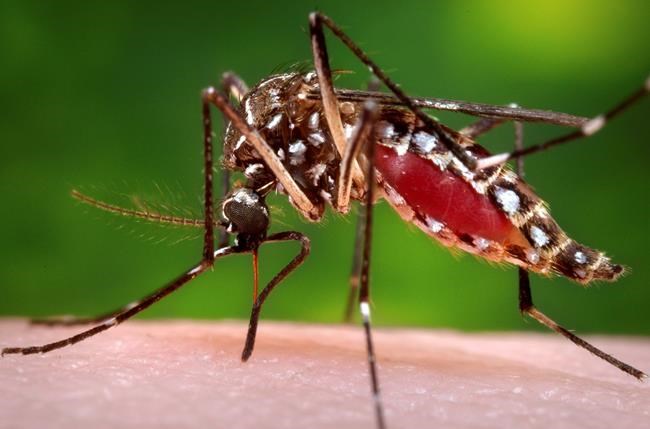
Birth defects seen in 6 per cent of US pregnancies with Zika
NEW YORK – A U.S. study of Zika-infected pregnancies found that 6 per cent of them ended in birth defects. The rate was nearly twice as high for women infected early in pregnancy.
It’s the first published research on outcomes in the United States, and the authors say the findings echo what’s been reported in Brazil and other countries with Zika outbreaks.
It also showed that the rate of birth defects was the same for women who didn’t show any signs of infection during their pregnancy as those that did. That’s important because most people who get infected don’t have any symptoms, said Margaret Honein of the Centers for Disease Control and Prevention, one of the study’s authors. Symptoms include fever, rash, joint pain and red eyes.
“Pregnant women and their health care providers need to understand there is a risk” for infected women who never seemed to get sick, she said Wednesday.
The study came from a U.S. registry that the CDC started earlier this year to monitor pregnant women with Zika. All of the women included were infected while in a Zika outbreak country or had sex with someone who got Zika overseas. Zika is primarily spread through mosquito bites.
Out of the 442 pregnancies, 26 had birth defects linked to Zika, or 6 per cent. Among women who were infected in the first three months, the figure rose to 11 per cent.
Twenty-one babies were born with birth defects; five of the cases were stillbirths, miscarriages or abortions — the researchers did not say how many of each. Defects included microcephaly, in which a baby’s skull is small because the brain hasn’t developed properly.
Included in the registry are any foreigners who were in the U.S. when their pregnancy ended. The study did not include the U.S. territory of Puerto Rico, which has been hit hard by Zika.
The CDC study was published this week by the Journal of the American Medical Association. Honein said the best estimates now are that 10 to 15 per cent of first-trimester infections develop microcephaly or certain other problems that can be diagnosed at birth.
Another study this week in the New England Journal of Medicine, done in Brazil by doctors at the University of California, Los Angeles, found that among 117 infants born to Zika-infected moms, 42 per cent had “grossly abnormal” clinical or brain imaging findings. That included four infants with microcephaly, but also cases in which the harms caused were not clear.
Scientists are still trying to determine the full range of birth defects that Zika may cause, including whether there are some that may not be diagnosed for months or years.
___
AP Chief Medical Writer Marilynn Marchione in Milwaukee contributed to this report.
___
Online:
Journal: http://tinyurl.com/jdpcoxa
Join the Conversation!
Want to share your thoughts, add context, or connect with others in your community? Create a free account to comment on stories, ask questions, and join meaningful discussions on our new site.













Leave a Reply
You must be logged in to post a comment.